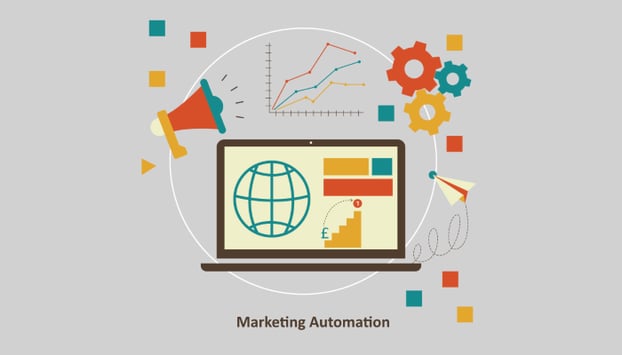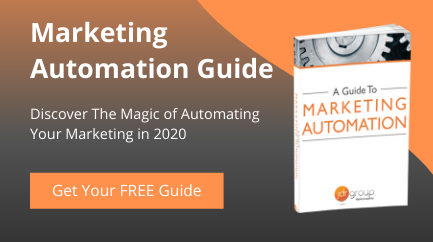What Is Marketing Automation And How Does It Work?

There are plenty of marketing automation tools now available to make your life easier and help you compete more effectively in the digital marketplace. But what is marketing automation all about and how exactly does it work? In this article we cut right back to basics for a no-nonsense guide to how marketing automation works and why you should be getting involved.
What Marketing Automation is (and what it is not)
There are a few common misconceptions about what marketing automation actually is. The biggest myth is that it involves handing control over to a piece of software, which then ‘spins’ blogs, spits out emails and generates social media updates without any input from you. This, in fact, is a pretty good definition of what marketing automation is not. Marketing automation software does not automate the process of creating content.
If anything, marketing automation aims to make your strategy more personal and give you more involvement than you had previously. When you adopt marketing automation you will have more freedom to create innovative content and reach out to your customers on a personal level than you did before.
So, what is it all about? Essentially, marketing automation is a software platform or tool that allows you to automate certain repetitive tasks; such as sending emails and analysing open rates. The apps are designed to save you time, which can then be focused on the important side of marketing, which is content creation and engaging with your prospects.
If you get your content marketing strategy right then you will start seeing plenty of new leads come through your door (or, in 2016, it is more likely to be your inbox). Cultivating these leads and turning them into customers is where marketing automation tools come into their own.
How it Works
When leads come into a business they are typically entered into a sales database or Customer Relationship Management (CRM) application. The critical question now is what to do with them. These prospects may have signed up for a newsletter or downloaded a brochure from your website, but the majority will not be immediately ready to make a purchase.
It won’t be enough to get a sales person to phone them and expect a new customer by the end of the conversation. Instead, each lead needs to be nurtured; which means scoring them, sorting them out into segments and devising a strategy of communicating with them to make them receptive to a sales pitch.
You could be talking about thousands of leads here, especially after a successful content marketing or advertising campaign. Physically sorting and analysing all these leads can take up a lot of your time. In fact, for the average small business this is an overwhelming task. So marketing automation software helps by transforming your leads database into practical data based on the information you hold about your prospects. It automates a lot of this sorting and sifting process.
You will probably end up with your leads divided into several key segments, or ‘buyer personas’, and maybe subdivisions within these. These could be based primarily on the nature of your prospect’s business, or maybe their job position within their organisation.
However you use marketing automation to stratify your leads, it will prepare you for the most important part of marketing, which is developing your leads through a sales and marketing funnel.
Here, again marketing automation software can help. A so-called sales funnel is actually a buyer journey, from first contact, to signing someone up as a first-time customer, then a regular customer, and finally a brand advocate – a source of referrals and new business themselves.
Marketing automation can provide a framework for you to create appropriate content which can then be published through the system, with the intention of moving prospects progressively through each level of the funnel. Once the segments or personas are in place, content can be created that addresses each prospect’s specific questions and business requirements.
Why You Need It
The primary reason so many businesses are adopting marketing automation is it allows a small marketing team to carry out the work that once occupied an entire department of administrators, analysts and data entry clerks. For the first time, the digital economy has brought the full potential of marketing methodologies to companies with small teams and limited budgets.
This on its own should be sufficient reason for you to give serious consideration to adopting marketing automation, if you haven’t already. Marketing automation helps you prioritise your time, letting you focus on those leads that are most likely to convert and those with the potential to yield the greatest value.
Analytics that may have taken days through conventional means, or been missed entirely, is now at your fingertips in seconds with marketing automation. This is another clear reason why you should adopt it. Marketing automation takes all of the random elements out of marketing, by giving you access to phenomenally detailed reporting functions, specific results from marketing actions and a clear indication of ROI from each activity.
For a B2B business, marketing automation gives you a more predictable return from your marketing budget, allowing you to plan, grow your business and increase your position within your industry.


